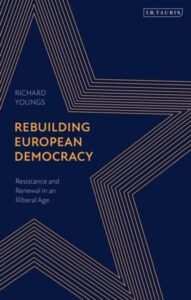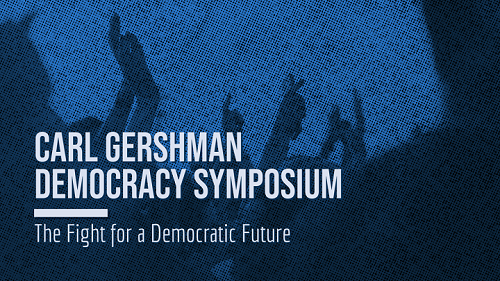 The narrative of democratic crisis and the populist surge is too one-sided. European politics is in fact in a state of push-and-pull between democratic rollback and democratic revival, argues Richard Youngs, a senior fellow in the democracy, conflict and governance program at Carnegie Europe. Small-scale democracy initiatives are taking shape across Europe, and the grassroots momentum behind them is exciting. But these different forms of democratic renewal need to start working hand in hand, he writes for The Guardian:
The narrative of democratic crisis and the populist surge is too one-sided. European politics is in fact in a state of push-and-pull between democratic rollback and democratic revival, argues Richard Youngs, a senior fellow in the democracy, conflict and governance program at Carnegie Europe. Small-scale democracy initiatives are taking shape across Europe, and the grassroots momentum behind them is exciting. But these different forms of democratic renewal need to start working hand in hand, he writes for The Guardian:
- People have mobilised against corruption or around particular policy issues and then taken on a broader democratic reform agenda. This has been the case in Bulgaria, Romania and Slovakia, the women’s strike in Poland, the Sardines movement in Italy, the Million Moments movement in the Czech Republic and protests in Malta ….
- New civil society initiatives aim at tackling polarisation. One example is a project called Arguments Against Aggression, which tries to equip people with more empathetic communication and debating skills….. Meanwhile, Covid has given rise to hundreds of civic mutual aid initiatives, such as En Première Ligne in France.
- Apart from the now familiar stories of En Marche in France, Italy’s Five Star Movement and Podemos in Spain, new parties based in part on the dynamics of social movements have gained ground. These include Alternative in Denmark, Agora in Belgium, Bij1 in the Netherlands, Momentum in Hungary and USR in Romania. In Poland, a batch of new parties includes Modern (Nowoczesna), Left Together (Razem) and Poland 2050….
Each [initiative] brings distinctive ingredients to the table of democratic renewal. Yet none has advanced enough to reverse democratic erosion, says Youngs, the author of the forthcoming Rebuilding European Democracy: Resistance and Renewal in an Illiberal Age. RTWT
 Political polarization is a major obstacle to democratic renewal, says a prominent analyst.
Political polarization is a major obstacle to democratic renewal, says a prominent analyst.
The strategy of bridging divisions actually has a place even in electoral battles, argues Stanford University’s Larry Diamond. In what Tom Ginsburg and Aziz Huq have described as “near misses” in other countries’ battles with creeping authoritarianism, the best way to arrest the decline of democracy is to defeat the authoritarian party at the polls. Such defeats are harder, though, if an authoritarian party can change the rules and defy the popular will to guarantee its victory. Even if elections are honest, defeating authoritarian populism requires fashioning a broad coalition to deflate the populist strategy of creating and exacerbating polarizing divisions, he writes for American Purpose.
Democratic renewal is one of the themes of an online symposium honoring the National Endowment for Democracy’s founding president, Carl Gershman, who retired in July 2021. The event will include remarks by Gershman and two outstanding panels. Francis Fukuyama will lead a conversation on The Challenge of Democratic Renewal, featuring experts Anne Applebaum, Amb. Reuben Brigety, Michele Dunne, and Larry Diamond. NED President & CEO Damon Wilson will join frontline activists Rosa María Payá, Nathan Law, Igor Blaževič, and Zainab Bangura in a discussion of The Fight for a Democratic Future.
September 21 at 10 am EST. Register here.








